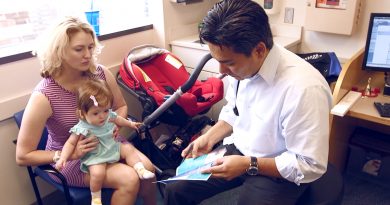The high costs of diabetes medications
You can do a lot of things with $1,700 – buy a high-end MacBook with all of the bells and whistles, go on a shopping spree, or, if you budget wisely, even take a trip to Paris.
However, if you’re a diabetic, you may find yourself spending that $1,700 on a three-month supply of a single medication, even with health insurance.
My family is familiar with how costly diabetes medications can be because my mother is a diabetic. One of the daily medications that she takes is an injection to help regulate her blood sugar.

Two weeks ago, when the time came for her to refill her medication, she got a call from the pharmacy asking her if she knew the price of her medication ($1,700 with our insurance coverage) and if she was certain about wanting to fill a medication that was so expensive.
But that’s not all. Many diabetics, just like my mother, who also takes insulin and Metformin, take multiple medications to manage their diabetes. My family is lucky to have good health insurance coverage and the means to afford all of these costly medications, but many families are not so lucky.
A brief from the National Center for Healthcare Statistics describes how many diabetics do not take their medications as prescribed in an attempt to lower costs. One fairly common technique to attempt to lower costs is through rationing their medications, which can have devastating effects.
A quick Google search for “rationing insulin” yields many upsetting news stories about Americans who have died from trying to stretch out their insulin supplies or taking cheaper insulin despite side-effects.
Thirty million Americans (and counting) are forced to grapple with the many negative health effects of diabetes, and the high costs of diabetes medications only adds to their burden of living with this condition.
But the costs of medications do not just affect diabetics and their families. They also hinder the ability of healthcare practitioners to care for their patients to the best of their ability. Even the most astute, thorough practitioner who is able to make the most accurate diagnoses and prescribe the most effective medications for their patients will not be able to help a diabetic who cannot afford to take their medications.
Therefore, as current and future healthcare professionals, as people with loved ones with diabetes, and as people who just want to improve healthcare for the better, we must educate ourselves on the struggles that diabetics face in trying to obtain necessary treatment and advocate for solutions to the issue of these exorbitantly priced medications.
-By Avilasha Sinha, first-year medical student at Baylor College of Medicine




Excellent elucidation. Healthcare regulatory bodies need to seriously address the problem and find solutions beneficial to the affected people.